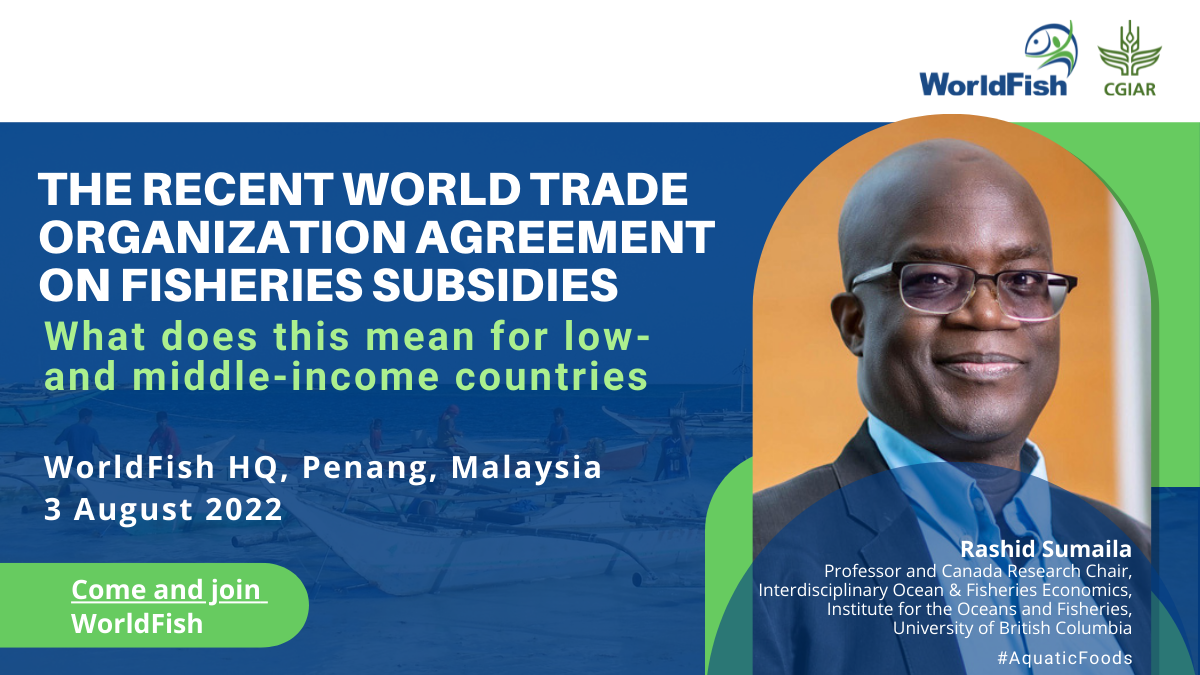A seminar exploring the latest high-level agreement on fisheries subsidies for the benefit of poor, vulnerable and small-scale aquatic food dependent communities from low- and middle-income countries.
Date: Wednesday, 3 August 2022
Time: 10:00-11:30 (UTC+8/Malaysia time)
Watch the event recording:
Sustainably managed wild fisheries support food and nutritional security, livelihoods, and cultures. However, harmful fisheries subsidies are increasing globally and can undermine these benefits. In line with this, high-level policies, taking into account practical disciplines, must be implemented to reduce overcapacity, and overfishing and eliminate subsidies that lead to IUU-fishing.
At the 12th Ministerial Conference (MC12) held on 17 June 2022, the World Trade Organization (WTO) Agreement on Fisheries Subsidies was adopted, which marked a major step forward for ocean sustainability. This was a key factor in the widespread depletion of the world’s fish stocks and represented a historic achievement for the first Sustainable Development Goal (SDG) target.
In a seminar hosted by WorldFish, the University of British Columbia's Professor and Canada Research Chair in interdisciplinary ocean and fisheries economics, Rashid Sumaila, presented his perspectives on the recent WTO Agreement on Fisheries Subsidies and discussed its goals to address IUU fishing and safeguard the livelihoods of small-scale fisheries communities.
Invited speaker:
Rashid Sumaila, Professor and Canada Research Chair, Interdisciplinary Ocean and Fisheries Economics at the Institute for the Oceans and Fisheries, University of British Columbia
Moderator:
Essam Mohammed Yassin, Director General (a.i.), WorldFish & Senior Director (Acting), Aquatic Food Systems, CGIAR
Stay up to date with the latest information by following WorldFish and the hashtag #aquaticfoods to join the virtual dialogue on Twitter.
We look forward to your active participation.
